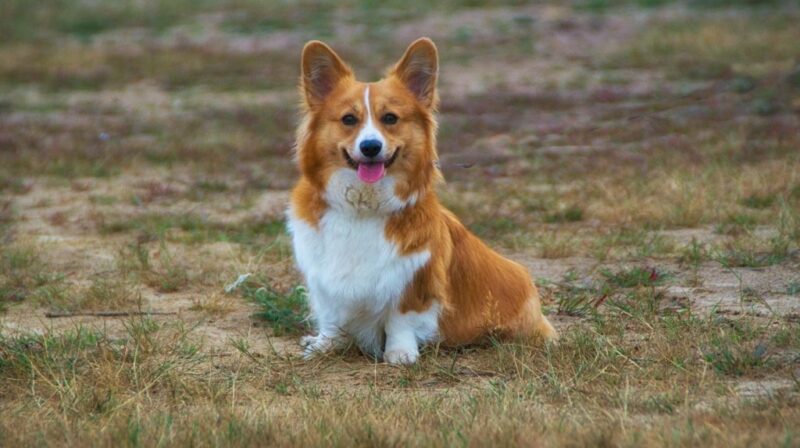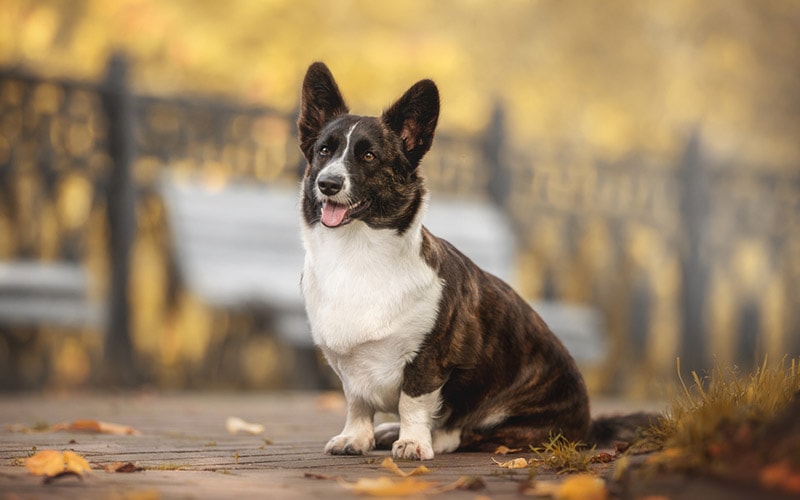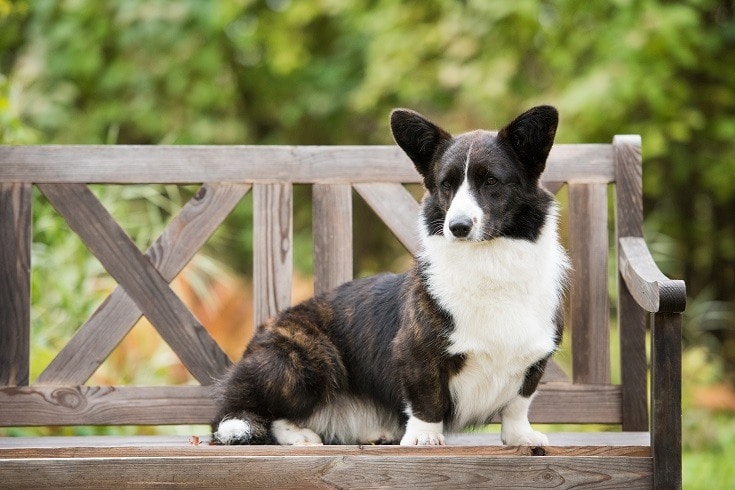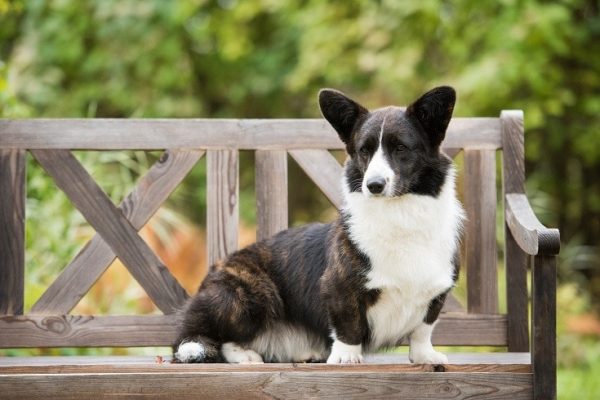Corgis are not known to be overly aggressive dogs, although their breeding as heelers, which are herding dogs that nip at the heels of cattle, can lead some owners to mistake their actions for aggression. The Corgi is, in fact, considered to have low levels of aggression when compared to other breeds and considering its ranking as one of the most popular breeds in the U.S.
Read on for more information about this breed, whether it is aggressive, and what can be done to help reduce the risk of having a Corgi that nips.
About The Corgi
There are, in fact, two types of Corgi: the Cardigan Welsh and the Pembroke Welsh Corgi. They are similar breeds, but the Cardigan Welsh Corgi is not popular outside its home country of Wales. Therefore, when talking about Corgis, people are usually referring to the more popular and widespread Pembroke Welsh Corgi.
The Pembroke Welsh Corgi was bred as a barnyard or farm dog. They would fulfill several roles, including rodent catching, guarding livestock, and even protecting the family. They were also used for herding. Their size and their breeding meant that Corgis were specifically used as a type of heeler. Heelers are herding dogs that nip at the heels of large livestock, not to hurt them but to encourage them to walk in the appropriate direction.
Today’s Corgi is as likely to be found on a sofa as it is in a field, but generations and generations of breeding mean that the Corgi does retain some of its original herding characteristics.

Corgi Aggression
Corgis are friendly, loyal, and loving dogs, as a rule. They were bred to act as companions and guardians to their human family, so it wouldn’t have made sense to breed aggression into the Corgi. Despite being just outside the top 10 most popular breeds in the U.S., the Corgi does not feature in any lists of dog bite breeds, which means that they are less aggressive than the average dog.
With that said, dogs of any breed have the potential to be aggressive under certain circumstances. If they feel threatened, or if they have been abused or mistreated, dogs are more likely to be aggressive. In these cases, aggression is a defense technique: a means of looking after their welfare.
And because Corgis are heeling herders, it means that it is in their nature to nip at the heels of their livestock. If your Corgi views you, or your children, as needing to be herded and looked after, it may try and nip at heels to encourage what it believes to be suitable behavior.
Nipping
Corgis may nip at heels. In most cases, this is not aggressive and there is no intention to hurt, but it can be alarming and accidents do happen that can lead to injury or bites. Similarly, puppies and young dogs may also nip when playing and when developing.

How To Combat Corgi Nipping
Nipping can become a problem if it isn’t combated at an early age. As the dog ages and its nips get stronger, they can cause injury, and if the dog believes that nipping gets the desired results, the problem may progress.
- Redirection – Especially effective if your puppy likes grabbing things with its mouth and refusing to let go. Use a small treat or a piece of kibble. Place it in front of your dog’s nose and, when they let go of your pants, finger, or whatever else they are chewing on, praise them and give them the reward. Eventually, they will associate letting go with being rewarded.
- Interruption – Interrupt the behavior with a surprised noise. This doesn’t mean shouting at or yelling at your dog but instead making a shriek or an ouch noise. This will teach your puppy that they’re biting too hard and that you don’t like the action. It is basically teaching appropriate boundaries.
- Ignorance – When we hear the word punishment, many dog owners are put off because it sounds such a harsh and negative word. However, ignoring your dog for an action that you want to discourage is a form of negative punishment. If nipping typically occurs during playtime, take the toy away and stop playing.
- Time Out – Sometimes, puppies can start nipping because they’re too overstimulated or over-excited, and this is a good sign that they need a bit of rest. Put your puppy in their bed or a quiet area designated especially for them and stop your interaction with them.
- Stimulation – Nipping may be a sign that your dog isn’t getting enough stimulation, whether it is physical, mental, or via toys that are appropriate for chewing. Provide regular exercise, try to incorporate mental activities into that exercise, and ensure that they have plenty of chew toys.
- Training – Teach your puppy the “leave” and “drop” commands. Use positive reinforcement, which means rewarding your dog when it effectively does what you want it to. Be consistent with your training efforts and conduct a few minutes of training every day to ensure the best results.
In Conclusion
Corgis are very popular dogs, loved for their looks as well as for their loving and fun nature. They are not considered an aggressive breed and might be considered less aggressive than the average dog. However, some individual Corgis may nip and even bite under certain circumstances, and many puppies go through a nipping stage.
Through redirection, interruption, and training, it is possible to stop your Corgi puppy from displaying this unwanted behavior and to raise a friendly, well-mannered dog.
Featured Image Credit: Welshea, Shutterstock













